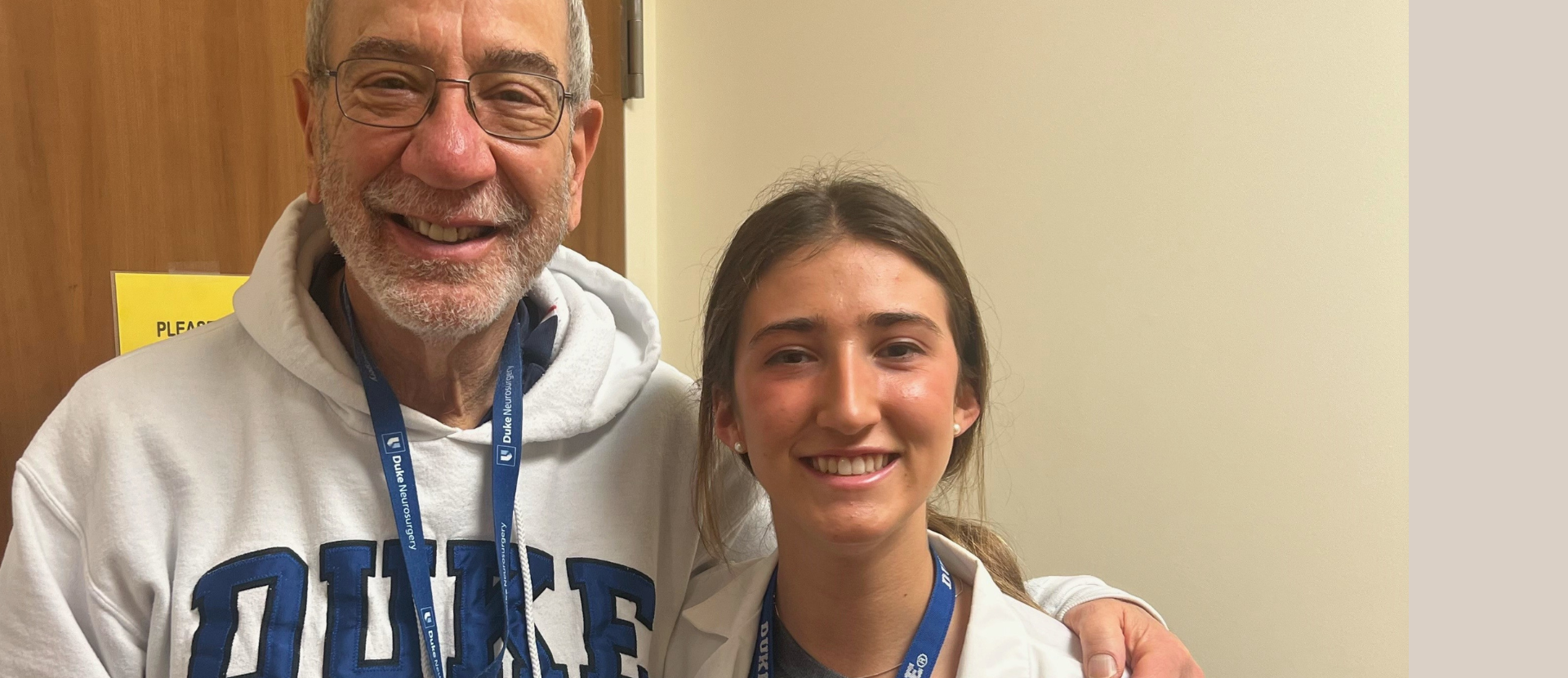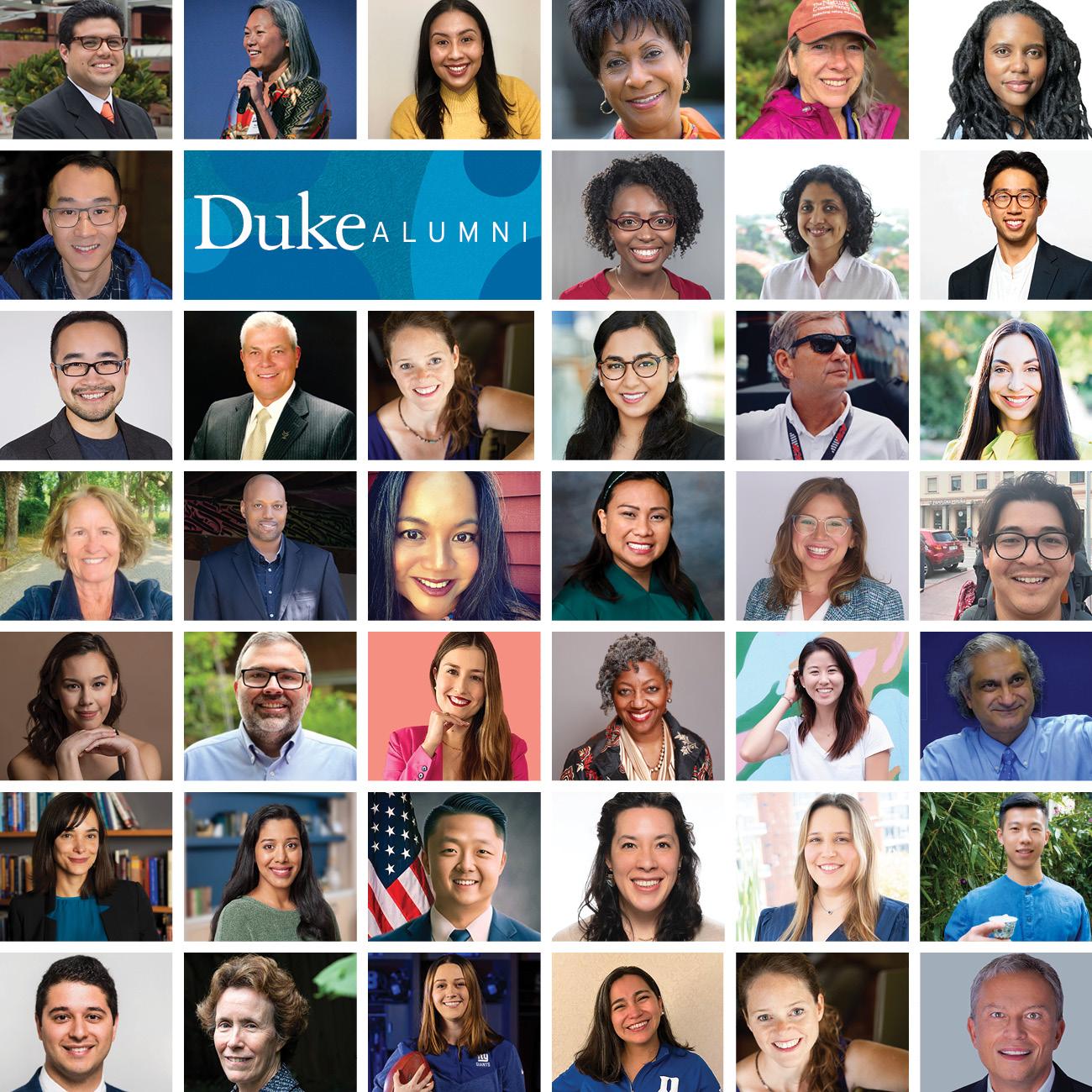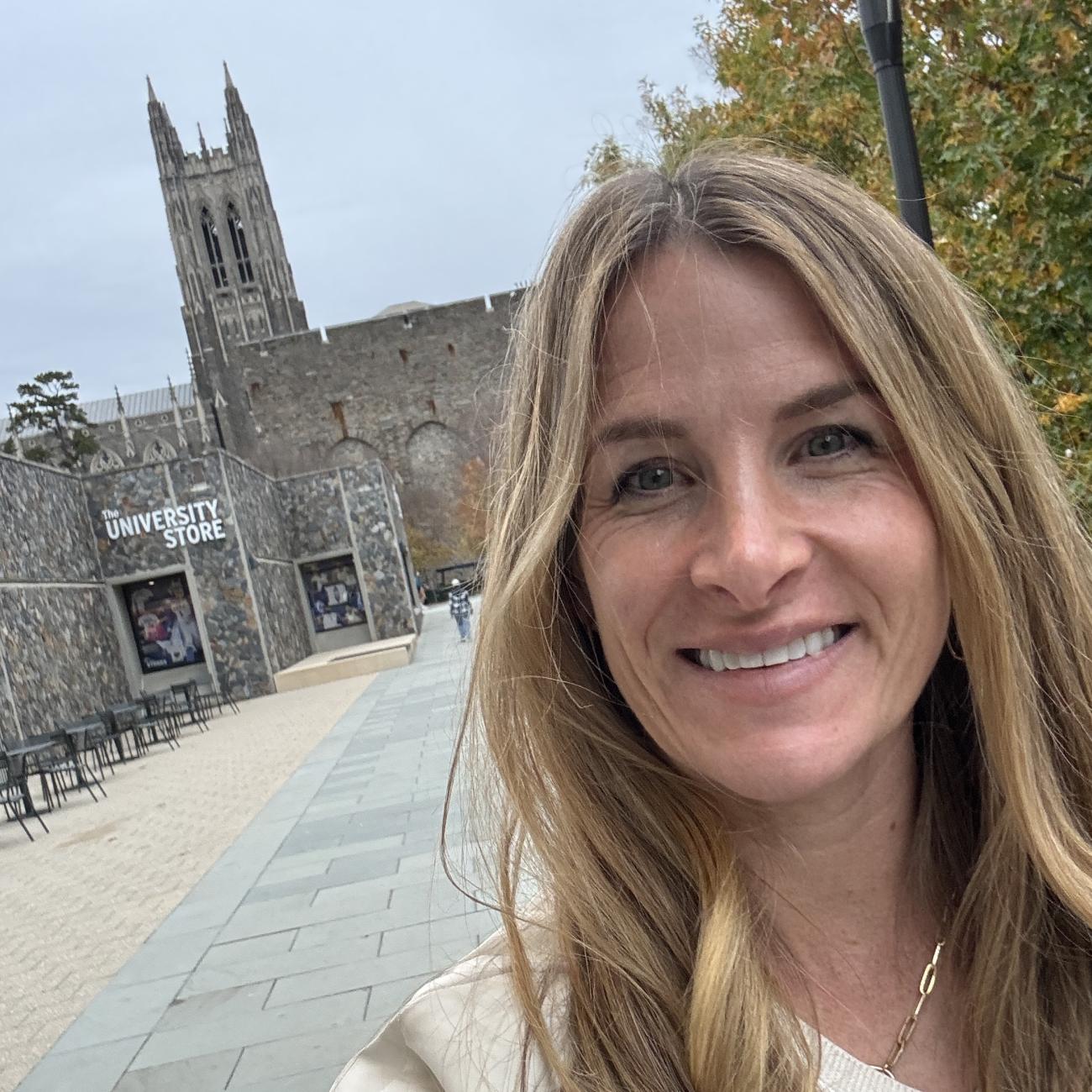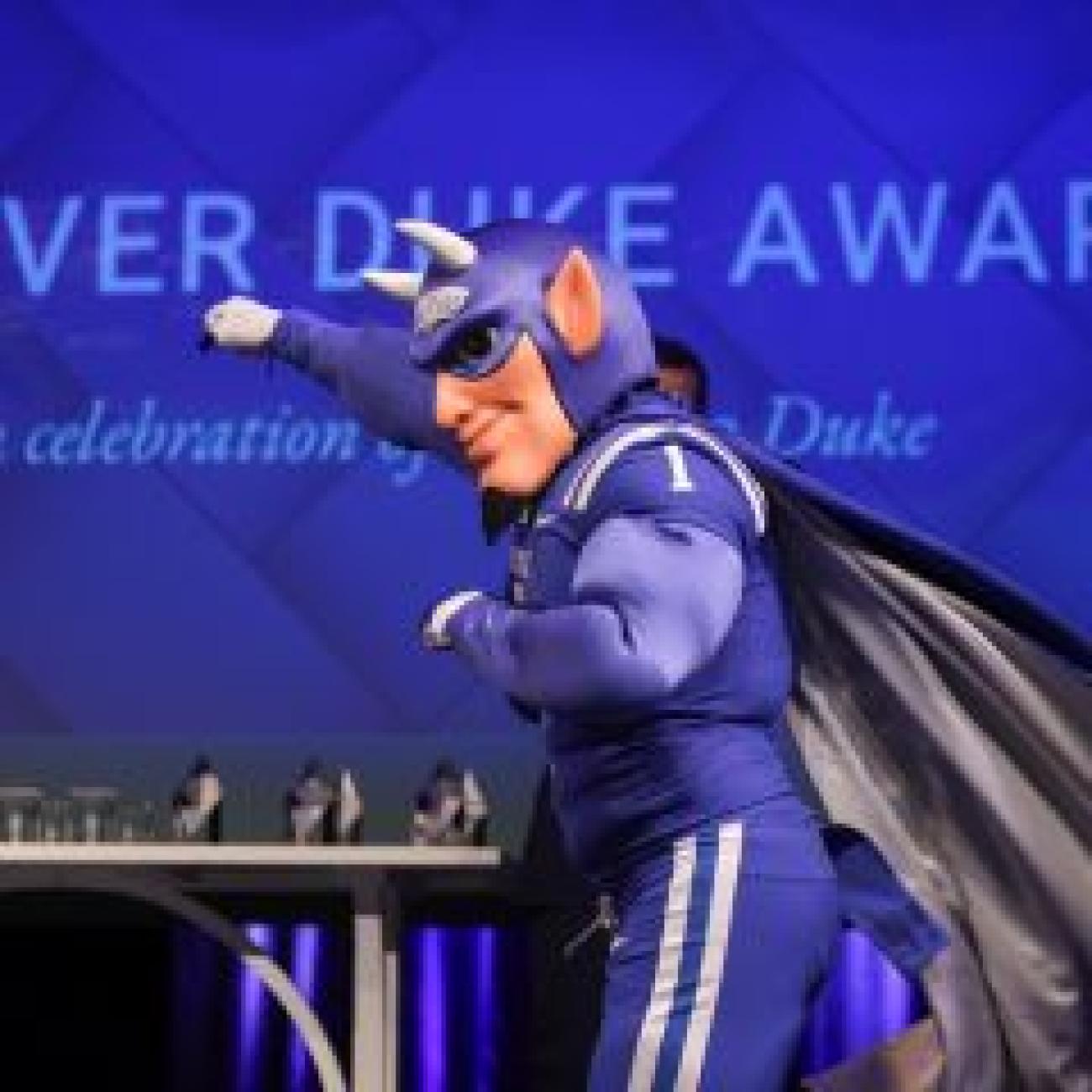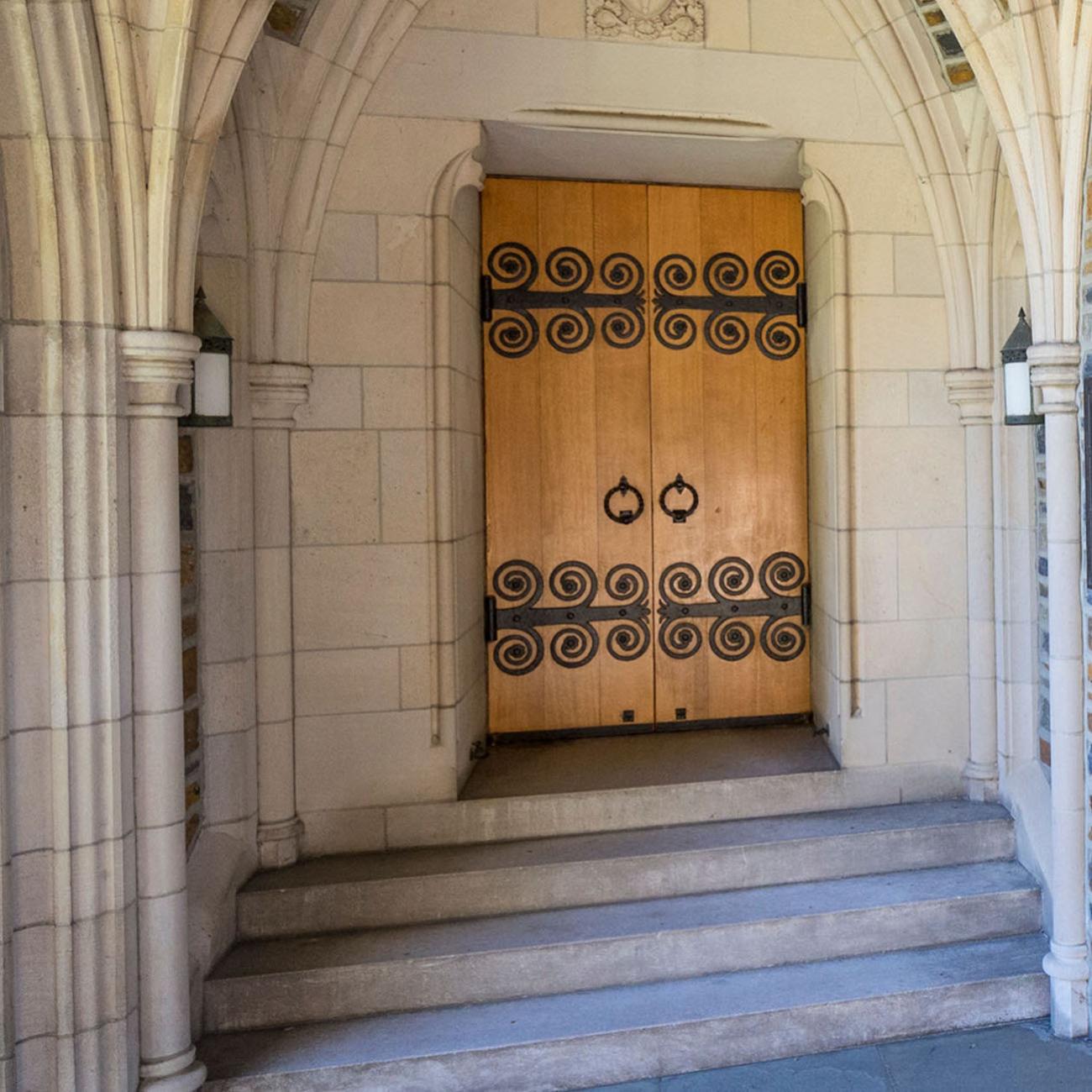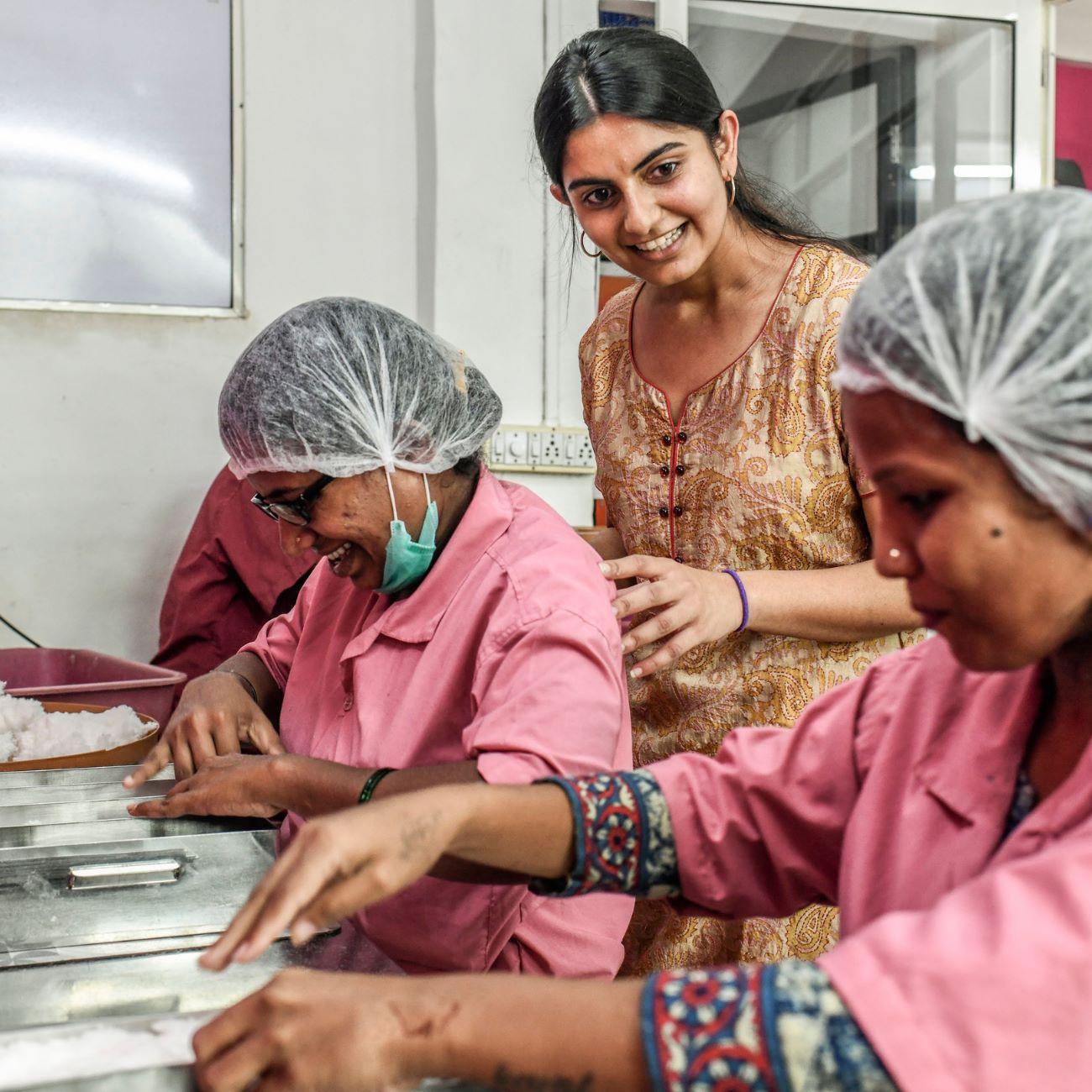Fighting the Good Fight at Duke
The newest to join now 12 alumni affinity and identity groups, Duke Alumni with Disabilities is fostering community with plans for change starting on a university level.
The news was bad: Jaden Sacks ’26 had severely injured her knee.
That injury alone would be challenging for anyone, but especially for Sacks, who has osteogenesis imperfecta type 1, or brittle bone disease.
Her mentor, Dr. Henry Friedman, a Duke neuro-oncologist, jumped in to help during her recovery—transporting Sacks to her Duke dorm the next day after meeting for a dinner. But she then was met with more challenging news: A winding route on crutches and up a ramp and stairs back to her dorm.
Sacks finally made it back to her room—but exhausted.
“And that’s where all this started,” Friedman said.
Within a few months, Friedman and Sacks co-founded Duke Alumni with Disabilities, whose members hope to change the conversation around disability by building community and championing inclusivity.
“The disability community is the largest minority group,” Sacks says. “It’s also the only minority [group] that anyone can join in an instant; no one is excluded from the discussion.”
Education about disabilities is a gateway into remedying this issue, Sacks and Friedman say. And it’s one motivator for the group as they create community and partner to raise awareness.
Duke’s Disability Management System (DMS) is joining up with the group to do just that, says Christina Kline, executive director for DMS.
For example, together they are creating a Disabilities Studies certificate. The certificate, likely starting this fall, aims to create both disability changemakers and to expand access to the resources and skills that can better level the workforce playing field.
Other top 10 universities, such as Princeton University and the University of Pennsylvania, offer American Sign Language (ASL) as a foreign language credit, and several Duke students take disabilities studies courses at the University of North Carolina. This fall, Duke will also now offer ASL courses for students thanks to the efforts of students and faculty, including the Duke ASL Club.
“These programs could increase awareness around disability inclusion.” Kline says. “We can build skills to ensure access in their future careers.”
Lenore Ramm Hill ’00, co-chair of the group and a retired Duke employee, emphasizes that education about disabilities helps with the transition into the workforce. Hill, who also has osteogenesis imperfecta and uses a wheelchair, landed her first job at IBM, where she encountered myriad challenges.
Once Hill remembers a fire alarm going off and not knowing what to do. A fellow colleague carried her down four flights of stairs to safety. It was only when she started working for Duke that she learned that stairwells have firewalls and if she couldn’t get out of the building, staying inside a stairwell would be the next safest option.
“If I had known that at IBM, then I could’ve helped myself.” Hill says. “There’s so many things like that where living in the real world would’ve been much better.”
Duke Alumni with Disabilities’ goals set the tone for the important work necessary for future generations of students and alumni, members say.
While many of their goals are long-term, the group is immediately focused on building a community where people with visible or non-visible disabilities can share their experiences, mentor and help each other.
The group notes a feeling of loneliness that can happen when someone with disabilities lives in a world that does not realize their needs. Fostering a community where warmth and empathy are prioritized to all members can lead to open dialogues, rather than isolation, Sacks says.
“It’s a space where we’re all speaking the same language,” Sacks says. “No matter what disability you have, we all can benefit from learning from each other.”







